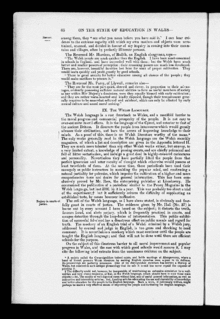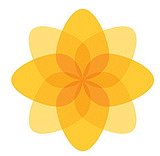This article needs additional citations for verification .(March 2017) (Learn how and when to remove this template message) |

The Books Council of Wales (previously known as the Welsh Books Council) or Cyngor Llyfrau Cymru was established in 1961. Today it is funded by the Welsh Government (previously the Welsh Assembly Government). The council's aims are to promote the interests of Welsh language books and English language books of interest to Wales, to promote the publishing industry, and to assist and support authors by offering a number of services and distributing grants. It offers design and editorial services for publishers, distributes grants for authors and publishers, and provides services for libraries.[ citation needed ]

The Welsh Government is the devolved government of Wales. It was established by the Government of Wales Act 1998, which created a devolved administration for Wales in line with the result of the 1997 referendum on devolution. The Welsh Government formally separated from the Assembly in 2007 following the passage of the Government of Wales Act 2006. The government consists of ministers, who attend cabinet meetings, and deputy ministers who do not, and also of a counsel general. It is led by the first minister, usually the leader of the largest party in the National Assembly, who selects ministers and deputy ministers with the approval of the assembly. The government is responsible for tabling policy in devolved areas for consideration by the assembly and implementing policy that has been approved by it.

Welsh ; [kəmˈrɑːɨɡ](

English is a West Germanic language that was first spoken in early medieval England and eventually became a global lingua franca. It is named after the Angles, one of the Germanic tribes that migrated to the area of Great Britain that later took their name, as England. Both names derive from Anglia, a peninsula in the Baltic Sea. The language is closely related to Frisian and Low Saxon, and its vocabulary has been significantly influenced by other Germanic languages, particularly Norse, and to a greater extent by Latin and French.
The council’s headquarters are in the former St Mary's College building in Castell Brychan, Aberystwyth; and it also has a distribution centre on the outskirts of the town at Glanyrafon Enterprise Park. It employs 40 permanent staff between both locations. The distribution centre has an annual turnover of around £3 million (net).[ citation needed ]

St Mary's College was a Roman Catholic seminary in Aberystwyth. It was the only Roman Catholic diocesan seminary founded in Wales. Also, as it trained priests in the Welsh language, it was the only post-reformation Roman Catholic college of its kind. It was founded in 1904 in Holywell and moved to Aberystwyth in 1936. It was closed in 1970 and now houses the Welsh Books Council.

Aberystwyth is an ancient market town, administrative centre, community, and holiday resort in Ceredigion, Wales. It is located near the confluence of the Ystwyth and the Afon Rheidol.
Alun Creunant Davies held the position of director from 1965 to 1987. [1]
Alun Herbert Davies (1927-2005), known as Alan Creunant in Wales, was a Welsh head teacher, and first director of the Welsh Books Council. His parents were Rev. Thomas Herbert (Creunant) Davies and Hannah Davies. On completing his secondary education in Llandovery he studied at Trinity College, Carmarthen, but did not enter the teaching profession until he had completed two years military service. Following a short period teaching in the Tregaron area, he moved to Llangeitho where, in 1952, he took up the position of school head teacher.









